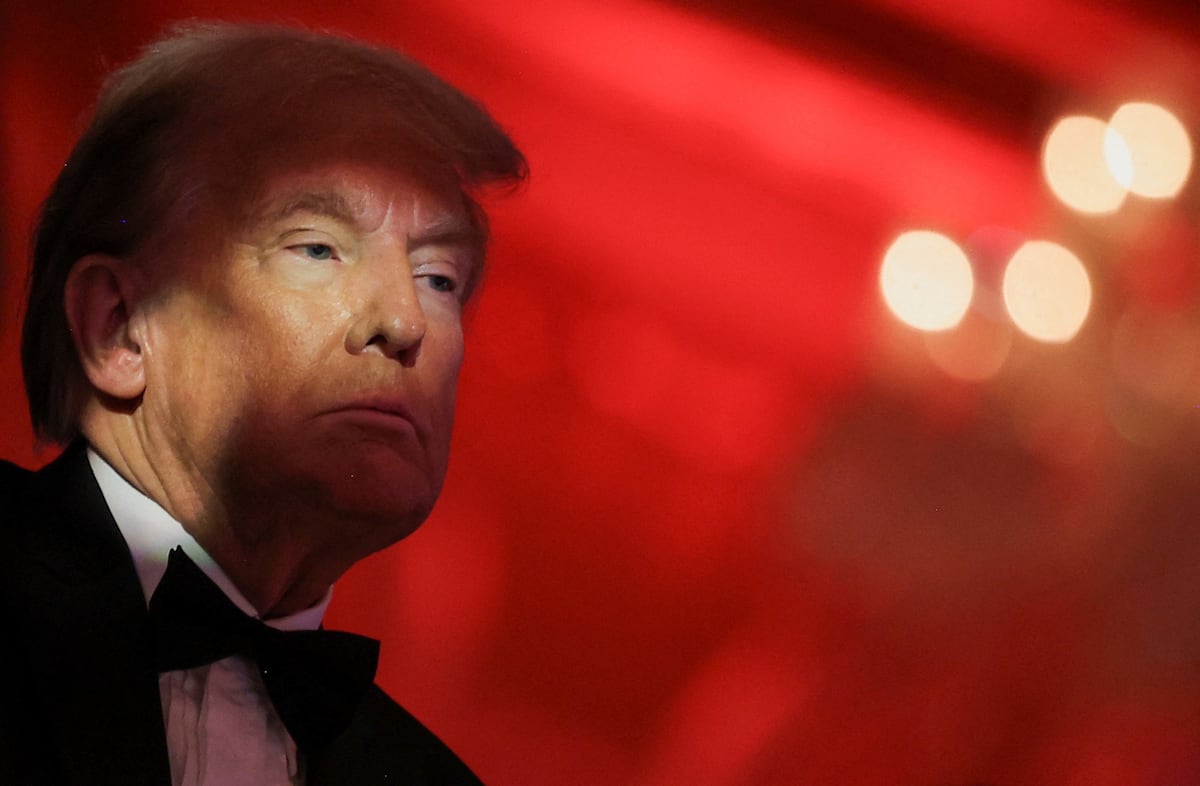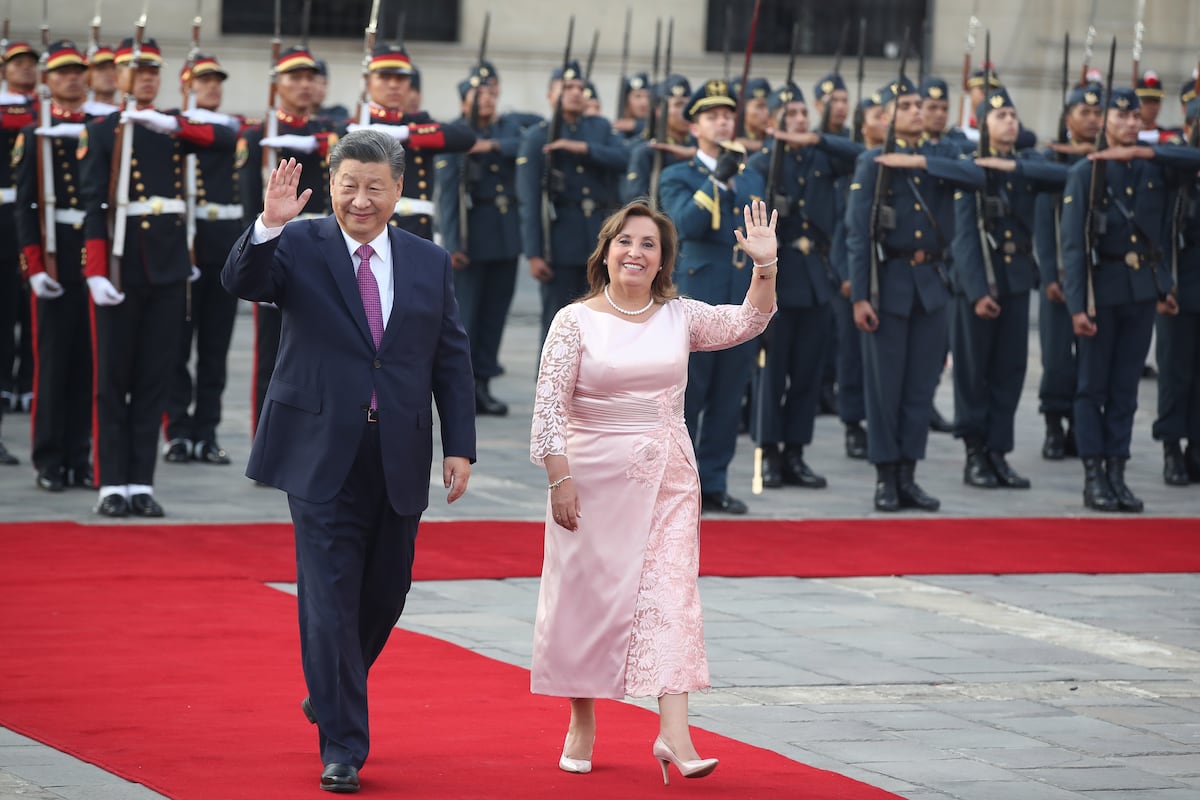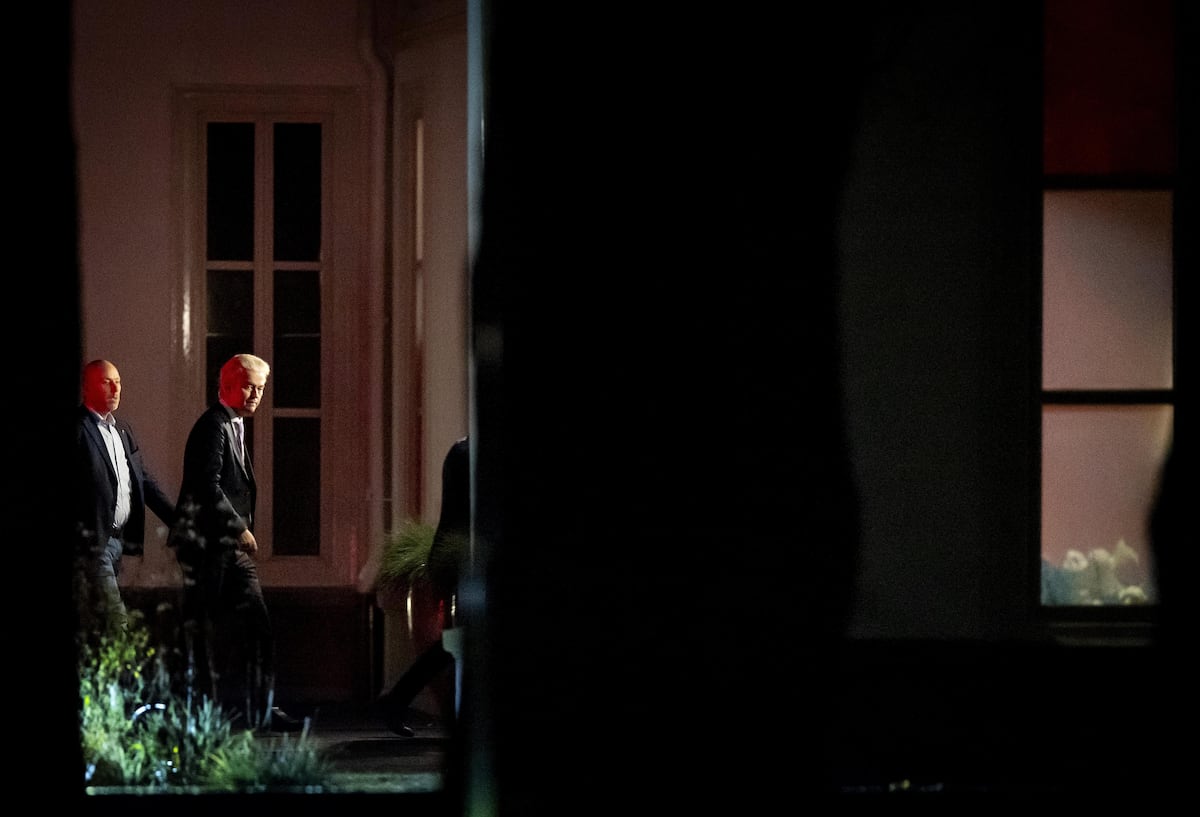Donald Trump’s electoral campaign suggested that, in the event of victory, his exercise of power would be a tsunami, and now the appointments that are accumulating confirm it: a radical, brutal and unapologetic Trumpist onslaught is coming. It is advisable to give up hope that there will be significant containment factors. Unfortunately, the first stages of the European reaction are disastrous.
The day after the US elections, the German government collapsed. The EU subsequently held an informal informal council. A week ago this column lamented “partisanship in a Shakespearian storm”, and it is worth confirming in the confirmation process of the new Commission that things have gotten worse, with the invaluable contribution of the Spanish Popular Party and the leader of the EPP, Manfred Weber, extraordinary interpreters of the practice of selfish and short-sighted calculation. The European popular family as a whole is also rehearsing courtships with the extreme right, while a murmur is heard that may be the rubbing of the hands of Viktor Orbán in Hungary, Robert Fico in Slovakia, Giorgia Meloni in Italy and others. At least Scholz has had the good sense to bring forward the call for elections in Germany a little: they will be in February. That is to say, it is likely that there will not be a government with command in place in Berlin until the end of spring…
Surviving Trump by limiting the damage is possible. It may even be the occasion for important structural improvements. However, the necessary precondition is unity of intentions. At the moment it is not seen, but we must not lose hope. If there is, the perspective does not have to be apocalyptic. Below are some suggestions about what to do.
defense spending
It is a bitter-tasting medicine, but it is necessary. EU countries, in general, have been increasing military spending for some years: we must accelerate. Nobody likes diverting money from hospitals and schools to arsenals. But we Europeans can no longer take our security for granted. It is beginning to look likely that Putin’s criminal adventure in Ukraine will end with some kind of strategic success for him. Trump is not willing to support Ukraine, and we Europeans are not in a position to compensate. At the same time, Trump’s commitment to NATO is dubious. The set of these factors designs a completely new security scenario.
In this, it is essential to have greater capabilities that serve both to deter potential aggressors and convince Washington that Europe takes its security seriously. Increasing military spending quickly and efficiently is difficult. A proper balance has to be found between purchasing material available in the market and building indigenous capabilities. It cannot be exceeded either on one hand or on the other. While progress is made on this path, support for Ukraine will have to be increased, although we cannot replace the United States to, at least, avoid the total collapse of kyiv.
Ties with other democracies
Given the undisguised democratic disdain exuded by Trump’s roster of nominees, we must imagine a new strategy of European alignment with other democracies that goes beyond the scheme by which Washington was the epicenter. We must strengthen ties and forge common positions with countries such as the United Kingdom, Japan, Canada, Australia or South Korea to act in a coordinated manner on the global stage – on issues such as the defense of international institutions or the fight against climate change – and even in front of Trump himself. The idea of ensuring small favorable bilateral relations is stupid, because alone each has a weaker negotiating position. Together, better. This logic must be extended to other democracies, such as Brazil.
Domestic private consumption
Trump is likely to impose tariffs that hinder European exports. It is also likely that, suffering from the imposition of even higher tariffs, China will seek to reorient its exports towards Europe, flooding us with cheap products based on subsidized production overcapacity. We will have to protect ourselves. It will be convenient to negotiate and perhaps the damage of a full-fledged trade war can be avoided, but it is more than likely that we will suffer difficulties, that we will no longer be able to count on export fluency to the two main markets of our interest at the same time. It will be appropriate to encourage robust domestic consumption. This was 52.7% of GDP in June 2024. The average between 1995 and 2024 has been 55.1%. There was a peak of 57% in 1997, according to data compiled by CEIC Data.
Along with agreements that facilitate trade with other areas – for example Mercosur, a pact unfortunately blocked by France in the midst of the syndrome of far-right protectionism – domestic consumption will be an essential lung. Here too the balance is delicate, because the reactivation of an inflationary spiral must be avoided. But on the whole it seems wise to encourage it. There are different levers. In countries like Spain—and others—there must be an increase in salaries. In the EU as a whole, real wages remain 1.7% below the pre-inflationary flare peak. Raising them is also a good option to defuse the discontent of so many of the middle and popular classes.
Common investments
An enormous leap in investment is necessary, as Mario Draghi has pointed out. But, instead of the progress we need, we are going backwards: the data released this Thursday by the Commission show that investments have suffered a regrettable contraction of 2.5% in the first half of the year. Germany, the bloc’s main economy—and an export power that will suffer in the new environment of trade wars—should lead these investments, but it is tied between the ideological rigidity of certain parties and the legal rigidity of its Constitutional Court. I hope I know how to change course. But, regardless of what individual States must do, common action is essential.
This column has long advocated a new issuance of Eurobonds, with the understanding that what is essential to do to gain competitiveness, autonomy and security requires a lot of money, much more than what is available right now between the European budget and pandemic funds. . Leaving this to the individual action of the States would fracture the EU between members with financial muscle that can make investments, and, therefore, stimulate industries, achieve capabilities, and members who cannot.
Of course, other initiatives can be considered. The diary Financial Times reported on plans to allow the use of cohesion funds for investments in Defense and Security that take into account the objective of cohesion. It’s a good idea. Still, more will be needed. Draghi put his weight in favor of the need to provide ourselves with enormous new common resources. I hope they listen to you.
These are just a few ideas among many that will need to be explored. Enrico Letta has provided excellent information on how to improve the common market, an essential task. There are two months left until Trump takes office. You have to speed up and study and do many things. Of course, we will have to talk and negotiate with the new president of the United States. Look for transactional strategies. It may make sense to buy more gas, as Von der Leyen has suggested, and other trading tactics. But probably the most important thing is what we do without it. It’s time to roll up your sleeves.










